#StolenMemory Breaks New Ground
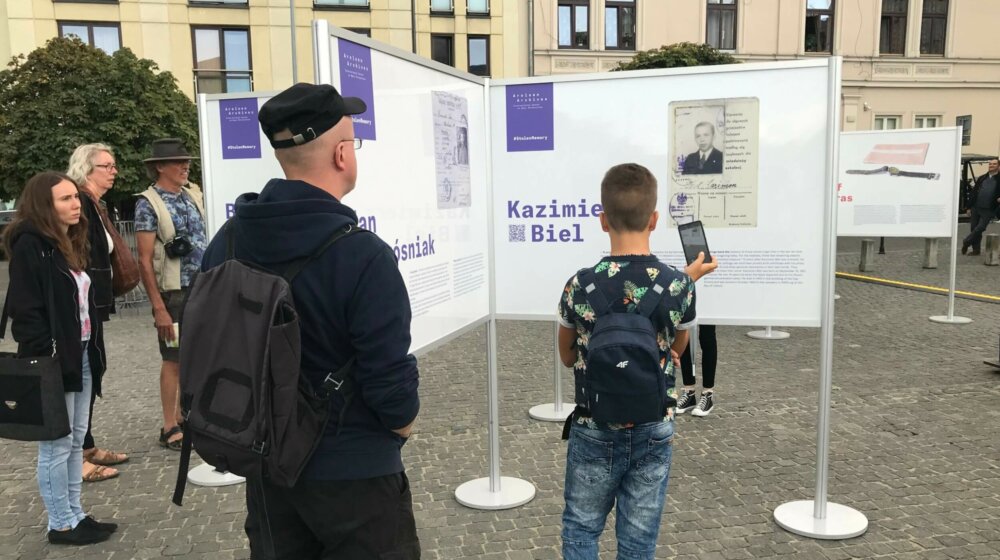
The Arolsen Archives still hold about 2,800 personal items belonging to former concentration camp inmates. When they launched the “#StolenMemory” campaign three years ago, they set themselves the goal of actively searching for the relatives of the victims of Nazi persecution and returning the “stolen memories” to their families. Poster exhibitions support the campaign. The personal effects and the fates of people from the local region are shown at prominent venues in order to reach the widest audience possible. The regional focus makes this kind of exhibition enormously significant for the country where it is held.
Following on from the first successful poster exhibitions that were held in 2018 at the UNESCO building in Paris, in Innsbruck, and in Kassel, the 2019 #StolenMemory campaign attracted a diverse international audience from the worlds of politics, academia, and education as well as the interested public. Greece assumed the chair of the International Commission of the Arolsen Archives for the duration of this year, and the Commission’s annual meeting provided the opportunity for a #StolenMemory exhibition at the Greek Ministry of Foreign Affairs in Athens. Floriane Azoulay described the importance of the exhibition as follows: “Some of the personal effects stored in the archive belonged to Greek prisoners. These items were on display at the #StolenMemory exhibition at the Ministry of Foreign Affairs in Athens and can also be found in our online archive. The exhibition in Greece enabled us to find a family that had emigrated to Australia – a great success.”
An important anniversary in Poland
After the opening of an exhibition in Luxembourg that was to last throughout the summer, #StolenMemory came to Poland for the first time. This had a symbolism all of its own as the search for the relatives of the victims of the Nazi regime has a special significance in this Eastern European country: Although a large portion of the objects stored at the Arolsen Archives belong to Polish victims of Nazi persecution, their relatives are usually completely unaware of their existence. This made it even more important to raise awareness of the campaign by marking the 80th anniversary of the invasion of Poland and the outbreak of the Second World War with three #StolenMemory exhibitions. These were held on The Ghetto Heroes Square in Krakow, at the International Youth Meeting Center (IJBS) Oswiecim/Auschwitz, and at the Museum of the Second World War in Gdansk.
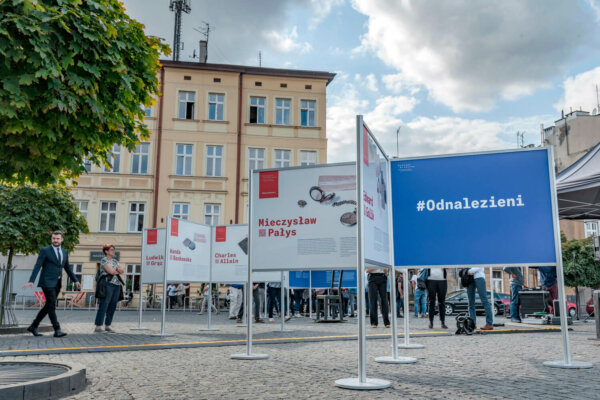
To mark the 80th anniversary of the invasion of Poland and the outbreak of the Second World War, #StolenMemory was shown at the The Ghetto Heroes Square in Krakow.
#StolenMemory as an educational project
In Gdansk and Oswiecim, #StolenMemory moved into new territory as part of an educational project: In cooperation with the German-Polish Youth Office (DPJW), the campaign is being integrated in German-Polish youth exchange projects. In future, groups who want to participate actively in the #StolenMemory campaign will receive advice and documentary materials from the Arolsen Archives. Students who visit the IJBS can attend various seminars where they use the biographies from the exhibition and documents from the Arolsen Archives, research the fates of people from the region, and search for their traces. The long-term aim of the project is to return the personal belongings to the families.
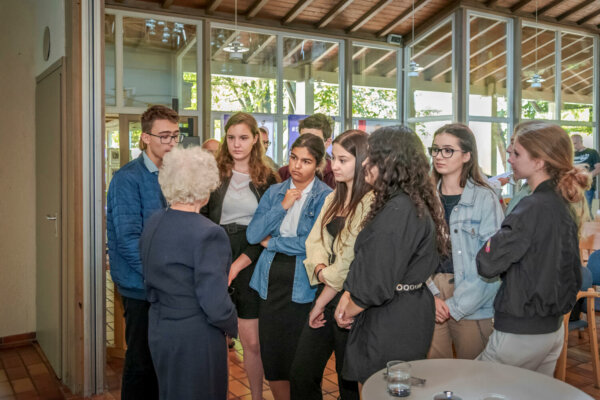
After visiting the exhibition together, the young people heard an eye witness account of the fate of one individual: 81-year-old Wanda Różycka-Bilnik spoke about her father Czesław, who is featured on one the “Found” posters.
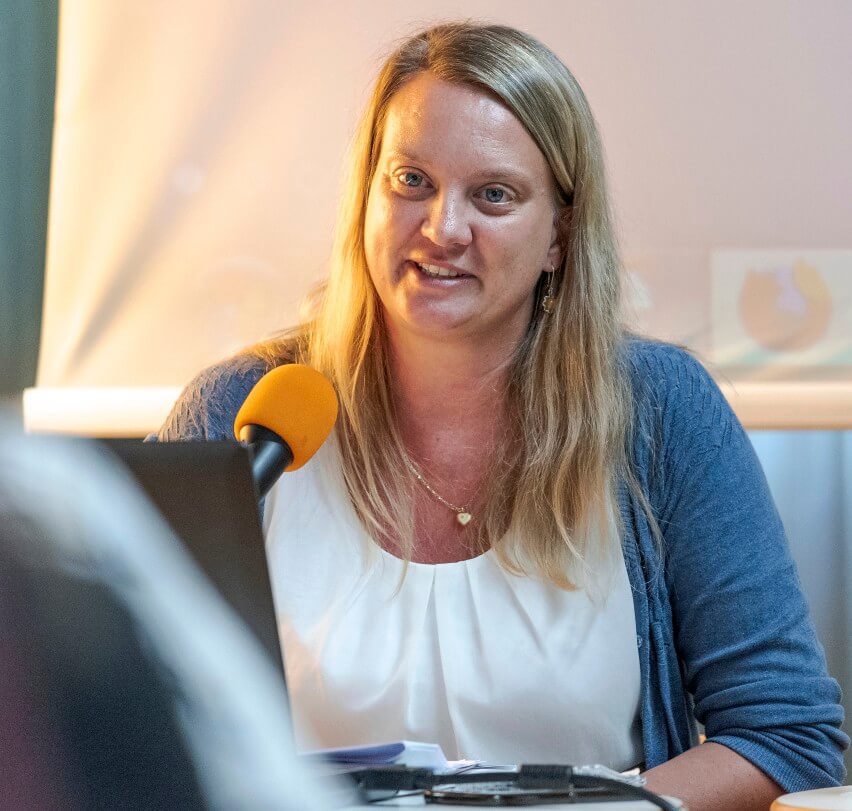
»Making contact with families and documenting their memories is part of commemoration and active remembrance and contributes to the formation of collective memories. Families in Poland and Russia in particular often still have no information about the fate of their loved ones, even though 75 years have now passed since the end of the war. Through this project, they receive important information about paths of persecution and gravesites for the very first time, and this helps them to come to terms with what happened.«
Anna Meier-Osiński, former Head of Tracing. As of February 2020, Outreach Manager for the Central (Poland) and Eastern European Region
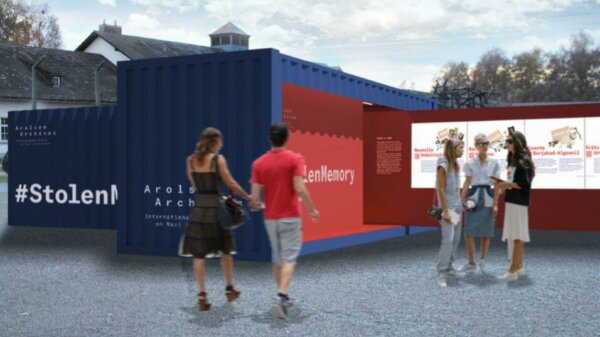
#StolenMemory roadshow
Preparations also began in 2019 for another innovative new concept for the campaign: A traveling #StolenMemory exhibition will visit at least 20 different places in Germany over a two-year period. The project has received funding from the Federal Government Commissioner for Culture and the Media under their program to promote culture in rural areas. We want to make the mobile exhibition easily accessible to people of all generations in rural areas. To achieve this end, a sea container is being converted into a mobile exhibition space which can easily travel from place to place. A website and educational materials that are targeted at a younger audience will accompany the exhibition. Links to digital elements will complete #StolenMemory’s transformation into a state-of-the-art educational resource. They will include animation films, interviews with members of victims’ families that can be viewed on a smartphone, and 3D artefacts for visitors to touch.
What’s next?
We will continue working with students from schools and universities in the coming year. In addition to cooperative projects with the DPJW and the IJBS, students from Ca‘ Foscari University in Venice will be playing an active role in the preparations for our first exhibition in Italy in January 2020. They are involved in carrying out research, doing translations, and conducting interviews with contemporary witnesses. They will also lead guided tours through the exhibition. In February, the #StolenMemory poster exhibition will be shown in a school for the first time: Speyer Evening School is organizing the exhibition to commemorate the end of the Second World War in the Palatinate region of Germany. A number of other international exhibitions are also planned: in Brussels, Moscow, Barcelona, and at the Auschwitz museum in June 2020 to mark the 80th anniversary of the first transport of Polish prisoners.

